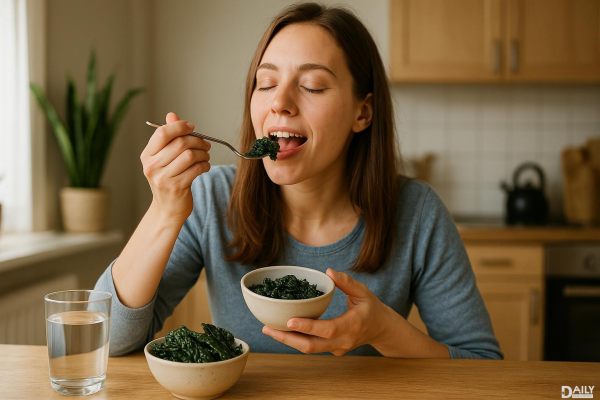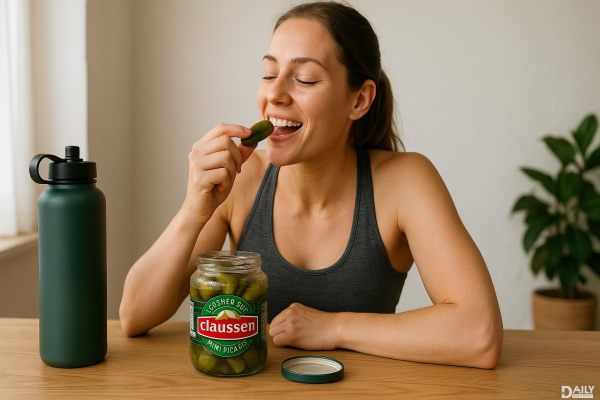Brussels sprouts might be tiny, but they’re nutritional powerhouses that have earned their spot on the dinner table. Whether you love them roasted to crispy perfection or shredded into a fresh salad, these little cabbages bring more to the plate than just flavor. Packed with vitamins, fiber, and cancer-fighting compounds, they’re a veggie worth celebrating—even if they sometimes leave you feeling a little gassy.
The Nutritional Breakdown
One cup of Brussels sprouts is basically a multivitamin in veggie form. With just 30 calories, you’re getting 3 grams of protein, 3 grams of fiber, and a hefty dose of vitamin C—more than what’s in an orange. They also deliver iron, calcium, and a solid amount of vitamin K, which is crucial for bone health and blood clotting. But the real magic lies in the plant compounds, like glucosinolates, which break down into isothiocyanates—substances that research suggests may help slow tumor growth and lower cancer risk. So yeah, these little guys are doing some serious heavy lifting in the health department.
Why Your Body Loves Them
Beyond the basic nutrients, Brussels sprouts have some next-level benefits. The sulfur-containing compounds don’t just fight inflammation—they also help your body detox by boosting enzymes like glutathione. That’s like giving your liver a little spa day. Then there’s the fiber, which keeps your digestion humming along while helping stabilize blood sugar levels. And if you’re pregnant or planning to be, the folate in Brussels sprouts is a big deal—it supports neural tube development in early pregnancy. Even your eyes get some love thanks to lutein and zeaxanthin, two antioxidants that help protect against age-related vision loss.
The Not-So-Great Side Effects
if you’re on blood thinners like warfarin, the high vitamin K content can mess with your medication’s effectiveness, so it’s worth chatting with your doc before going all-in on a Brussels sprout binge. And for folks with thyroid issues, overdoing it on raw Brussels sprouts might not be ideal since they contain goitrogens, which can interfere with thyroid function when eaten in large amounts.
How to Make Them Work for You
The key to reaping the benefits without the side effects? Moderation and prep. Cooking Brussels sprouts (roasting, steaming, or sautéing) can make them easier to digest and reduce the goitrogenic effect. Pairing them with healthy fats—like olive oil or avocado—helps your body absorb their fat-soluble vitamins. And if you’re worried about the gas factor, digestive aids like ginger or fennel tea can help keep things moving smoothly. At the end of the day, unless you have a specific health condition that requires caution, Brussels sprouts are a solid addition to a balanced diet.
So, are Brussels sprouts good for you? Absolutely. They’re nutrient-dense, versatile, and packed with compounds that support everything from your immune system to your gut. Sure, they might make you a little gassy, but that’s a small price to pay for all the good they do. Whether you’re roasting them with bacon or tossing them into a stir-fry, these mini cabbages deserve a regular spot on your plate.
























